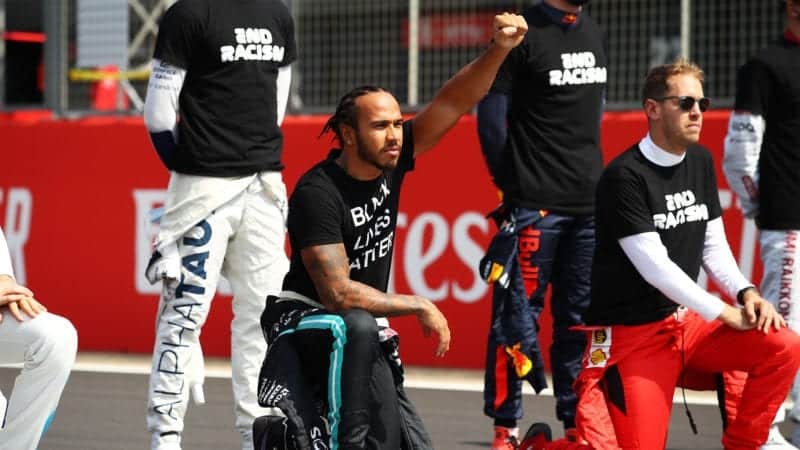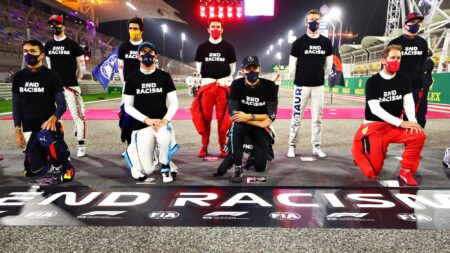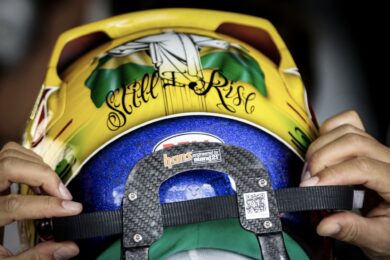Hamilton also expanded on his view on F1’s relationship with human rights, owing to the fact the grand prix calendar has often visited countries with questionable human rights records.
Bahrain, where the F1 season kicks off this weekend, is one of these countries, and last year Hamilton was sent personally addressed letters by three alledged Bahraini torture victims. In response, the Mercedes driver said he hoped discuss the issue with the Salman, the Crown Prince of Bahrain.
Whilst this has not yet occurred, Hamilton has still put great efforts into meetings and discussions with organisations in Bahrain to address the issue.
“I received those letters last year, which weighed quite heavily on me,” he said. “It’s the first time I’ve received letters like that along my travels.
“These last few months I’ve taken the time to try and educate myself, because coming here all these years I wasn’t aware of all of the detail the human rights issues.
“So I’ve spent time speaking to legal human rights experts, organisations like Amnesty, I’ve seen the UK ambassador here in Bahrain and I’ve spoken to Bahrain officials also.
“At the moment, I think the steps that I’ve taken really have been in private and I think that’s the right way to go about it.



